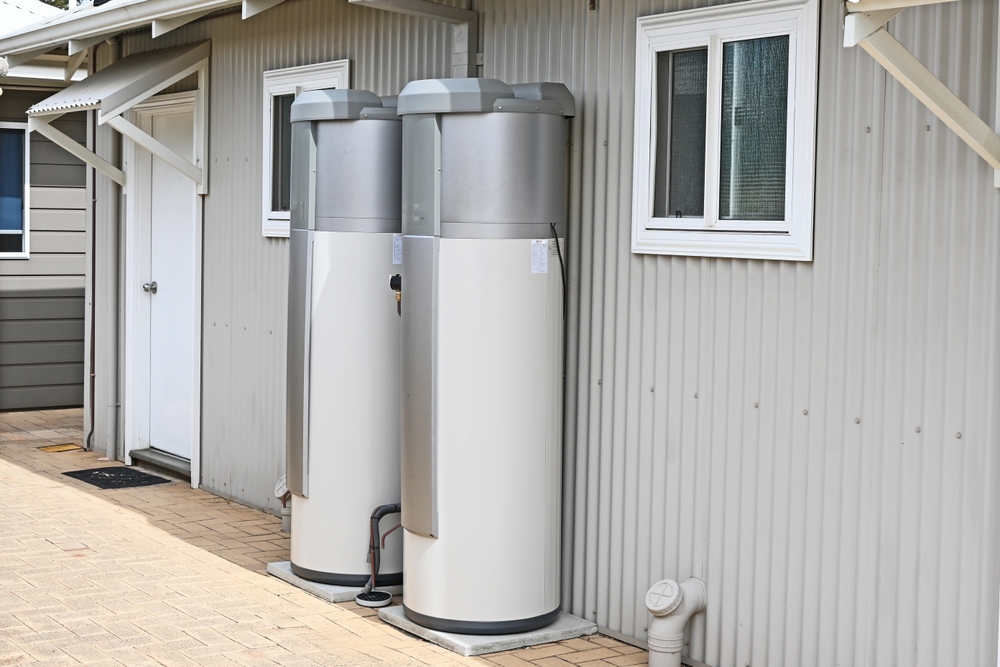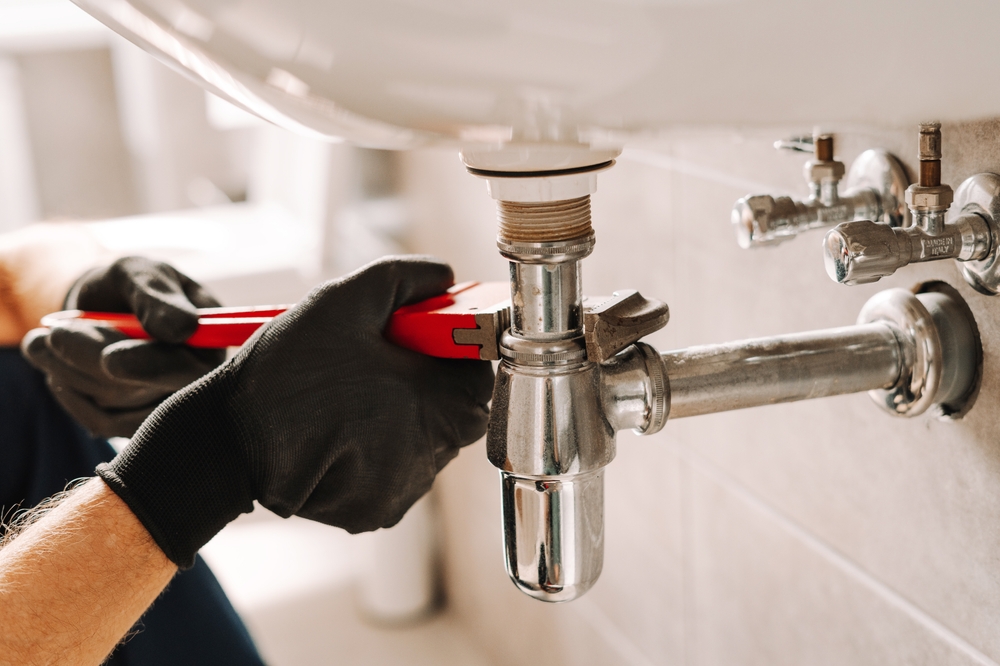When the hot water cuts out, you notice straight away. Showers turn icy, dishes pile up, and suddenly the cylinder tucked away in the cupboard is the only thing you can think about. The big question is usually the same: can it be repaired, does it need replacing, or is it time to upgrade to something better?
Around Wellington and the Hutt Valley, homes have all sorts of cylinders. Some are older low-pressure units that have somehow kept going for decades, and others are newer mains-pressure systems powering multiple bathrooms. Whatever type you’ve got, problems can creep up without warning, and figuring out what to do next isn’t always simple.
This guide covers the warning signs to watch for, what repairs can actually fix, when replacement makes more sense, and why upgrading can sometimes save you money in the long run. By the end, you’ll know your options and what to do if your morning shower suddenly turns cold.
Spotting the Warning Signs of a Tired Cylinder
Hot water cylinders don’t just give up one morning without notice. They usually start dropping hints, and if you catch them early enough, you might save yourself a lot of money and hassle. Some of the most common signs include:
- Water pooling around the base or visible leaks from fittings
- Showers that swing from boiling to lukewarm without warning
- Strange knocking, hissing, or rumbling sounds when the system’s heating
- A sudden jump in your power bill without any change in usage
- Weak water pressure that makes showers feel more like drizzles
If you’ve noticed one or more of these, it’s worth getting a plumber to check things out. Sometimes the problem’s a quick fix, other times it’s a sign the cylinder’s on its last legs. Leaving it alone usually only makes things worse, and no one wants to mop up water damage or fork out for emergency call-outs at midnight.
When Repairs Make Sense
Repairs are usually the first thing people hope for when their hot water cylinder starts acting up, and in many situations, they are a perfectly sensible option. Problems such as faulty thermostats, worn-out heating elements, or valves that have stopped working properly can usually be resolved quickly. These parts can be swapped out without replacing the entire system, which saves both time and money. Noise caused by sediment building up inside the tank can often be handled by flushing the system, restoring quiet operation and better efficiency.
Repairs are most worthwhile when the cylinder itself is still relatively young and in good condition overall. A minor issue in an otherwise healthy unit does not mean you need to throw the whole thing out. Spending a smaller amount on targeted repairs can add years to the life of the system and give you the comfort of reliable hot water without the large expense of a new installation.
That said, repairs should be seen as a way to extend the life of the cylinder, not a permanent reset. If the same problem keeps coming back, or if several parts are failing at once, the cost of repeated call-outs can quickly add up. In those situations, repairing the system again becomes a false economy. It may keep the hot water flowing in the short term, but it does not address the bigger issue that the cylinder is reaching the end of its usable life. When repairs turn into a cycle rather than a solution, replacement becomes the better option.
When It’s Time to Replace
Every hot water cylinder has a natural lifespan. In New Zealand homes, most units last somewhere between ten and fifteen years, depending on the model, how heavily it is used, and whether it has been properly maintained. Once a cylinder moves beyond that point, it is common to see problems like leaks, corrosion, and poor efficiency that repairs simply cannot fix.
Replacement becomes the smarter decision in a number of situations. If the tank itself has split or is badly corroded, there is no way to repair it safely. If you find yourself calling a plumber more and more often, the cost of frequent repairs can easily outweigh the cost of fitting a new system. Another clear sign is rising power bills caused by an ageing cylinder that is using more energy to produce the same amount of hot water. Finally, your household may have changed over time. A system that worked for a couple may no longer cope with the demands of a growing family, and replacing it with a larger capacity unit prevents daily frustration.
Installing a new cylinder gives you the peace of mind that the system is safe, reliable, and designed to meet your home’s needs. It removes the stress of wondering whether the next leak or breakdown is just around the corner. A replacement also gives you the opportunity to upgrade to a more efficient option, which in many cases lowers running costs and saves money on electricity bills. In short, replacement is not just about fixing a problem. It is about setting your home up for years of reliable hot water.
Why an Upgrade Might Be Worth It
Replacing a hot water cylinder doesn’t always mean swapping like for like. It’s a good chance to step back and think about whether a more modern system would be a better fit for your home. There are plenty of options beyond a standard electric tank, and each comes with its own benefits.
- Gas hot water cylinders: If your home’s already connected to gas, this option can be a game-changer. Gas cylinders heat water quickly, recover faster between showers, and give you a steady supply even when the whole household’s using hot water at once.
Solar hot water systems: By harnessing free energy from the sun, these systems reduce how much electricity you need to heat your water. They still have a backup for cloudy days, but over time, they can shave a noticeable amount off your power bill. - Heat pump water heaters: These use smart technology to pull heat from the air and transfer it into your water. They’re ultra-efficient, using far less electricity than a traditional cylinder, and they’re a solid choice for households wanting to lower both costs and carbon footprint.
- Mains pressure upgrades: If you’re still living with a low-pressure tank, upgrading to mains pressure is a huge quality-of-life improvement. It gives you stronger showers, better water flow to taps, and it works properly with modern fittings and appliances.
An upgrade is an investment, but it usually pays off. You’ll spend less on power, deal with fewer maintenance problems, and enjoy the comfort of reliable hot water every single day.
Call Harbour City Plumbing for Hot Water Cylinder Services
At Harbour City Plumbing, we handle everything from quick repairs to full replacements and modern upgrades. We’re Master Plumbers certified, which means the work’s always done safely and to the highest standard. Our expert plumbing team covers Wellington, Lower Hutt, Upper Hutt, and Porirua, and we understand the quirks of local homes, whether you’ve got an old low-pressure tank in the cupboard or a newer mains-pressure system that’s ready for an upgrade.
If your cylinder’s leaking, noisy, or just not performing the way it should, get in touch with us today. We’ll inspect it, talk you through your options, and get your hot water back on track with a solution that actually lasts.
Hot Water Cylinder FAQs
Do you handle hot water cylinder installations in Wellington?
Yes. We provide full hot water cylinder installation services across Wellington, Lower Hutt, Upper Hutt, and Porirua. Whether it’s fitting a brand-new system or replacing an old one, our plumbers make sure it’s installed safely and correctly the first time.
Can you help with hot water cylinder upgrades?
Absolutely. If you’re tired of low-pressure showers or want to cut down on power bills, we can upgrade your hot water cylinder to mains pressure, gas, solar, or a heat pump system. We’ll talk you through the options and help you choose the best fit for your home.
What should I do if I have a leaking hot water cylinder?
Don’t ignore it. A leaking hot water cylinder can quickly lead to water damage and higher power bills. Turn off the water supply if you can and call our team. We’ll assess whether it can be repaired or if replacement is needed, and we’ll sort it quickly.
Can I repair my hot water cylinder myself?
No. Hot water cylinders involve plumbing, electricity, and pressurised systems, which makes DIY repairs unsafe and, in most cases, illegal without certification. While you can handle small household tasks like clearing drains or checking for visible leaks, cylinder repairs and installations must be left to a licensed hot water cylinder plumber. Check out our guide on what you can and can’t repair yourself for more details.





